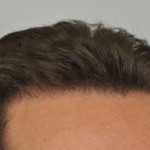Can Seborrheic Dermatitis Be Cured?
Seborrheic dermatitis is one of many health conditions that can cause hair loss problem. In many cases, it comes and goes which then eventually can cause skin damage. If it affects the skin of scalp, the hair follicles can be affected. There are some treatments that can help prevent it and manage the flare-ups. But can this inflammatory skin condition be cured?
Typically, it is a chronic condition and usually comes with scaly, itchy rash. The common site of the body where it occurs is the scalp of head (especially hairline). However, it also can occur on the chest, eyebrows, or around the nose.
The clearly cause of the problem is not yet fully understood. But, there are some theories. One of them is about the bacterial infection.
Some experts think that the infection of yeast organism called Malassezia may have a significant contribution and play a key role in causing some cases of seborrheic dermatitis.
You may think that it is the consequence of poor hygiene. But this is wrong. Actually poor hygiene practices have nothing to do with the risk of having this skin inflammatory problem.
However, there are some factors that can increase the risk of having this skin problem. These risk factors include [1]:
- Having certain neurological health conditions, like Parkinson’s disease.
- Having chronic health condition, especially one that affects the immune system such as HIV infection.
- Having a close family member with the same problem.
- Oily hair or oily skin.
- Stroke (less commonly).
As mentioned before, it commonly occurs on some areas of the body, particularly oily areas such as scalp, eyelids, eyebrows, lips, around the nose, around the ears, and on the chest (especially middle of the chest).
 In general, the symptoms and signs can vary from mild to severe. The following are the common symptoms:
In general, the symptoms and signs can vary from mild to severe. The following are the common symptoms:
- Itchy on the oily areas of the body, particularly such as the scalp of the head.
- Itching sensation may also be followed with small pimples and scaly rash.
- In some cases, greasy /dry scaling of the scalp may also occur.
- Reddened skin on either side of the nose or/and over the forehead.
- Flaking skin (the affected skin can be thickened).
If the inflammation affects the areas with lots of hairs (such as the scalp of the head), the noticeable hair loss can occur.
Unfortunately, it can spread from one area to other areas of your body. For instance, if you have it on the hairline of your scalp, there is chance for it to spread to the eyelids.
The inflammation of seborrheic dermatitis is itchy. And therefore, there is an urge to scratch it. And this scratching can be potential to spread it to other areas.
In general, it is not related to your diet. And fortunately, it is also not contagious. So if you have it, you will not spread it to other people.
Additionally, some factors can trigger the flare-up of the disease and aggravate it. These factors may include season change, weakened general health, fatigue, emotional stress, or illness [2].
As written before, seborrheic dermatitis can cause infection and inflammation on the skin. The affected area can have hair follicles damage which then can lead to hair loss.
Fortunately, hair loss is usually temporary. In other words, it should be able to be reversed. The chance to reverse it is in line with the decline of the inflammation intensity [3].
The answer is not clear yet. And this may vary from person to person. However many times, this problem can come and go.
For this reason, the treatment is often focused to improve the problem and prevent it from reoccurring! The treatment plan also can be determined by other factors such your overall health or the extent of the problem.



